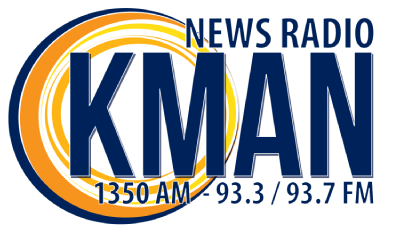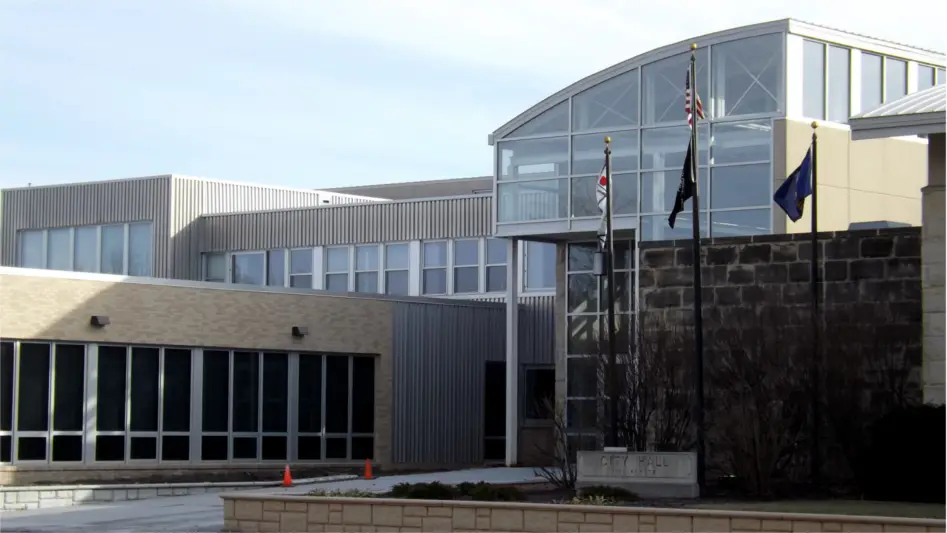Manhattan is now looking at a 0.47 mill increase in the proposed 2020 city budget after the City Commission agreed to shuffle expenses between a few accounts at its Tuesday meeting.
If passed as is, the total mill levy for the city in the 2020 budget will be 49.821 mills compared to 49.355 in 2019. Entering the fourth budget session, the city was looking at a 1.657 mill increase until commissioners gave consent to use Economic Development money to fund the Flint Hills Area Transportation Agency as well as the portion of Conference Center funding that was in the Bond and Interest Fund. They’ll also transfer funding of phase 2 of the airport terminal expansion and the Miller Parkway/Scenic Drive intersection projects from EcoDevo to the bond and interest fund — leaving an increase of 0.47 mills.
At that mill increase, owners of residences valued at $200,000 can expect an annual property tax bill bump of about $10. Commercial properties valued at $500,000 can expect a property tax increase of $59 per year. That doesn’t factor in the increases from Riley County and USD383.
Commissioner Jerred McKee says the Flint Hills Metropolitan Planning Organization nor aTa have objected to being funded through EcoDevo dollars.
“They’re trying to be better at framing themselves as economic development as well,” says McKee. “So I think long-term, it makes sense in that fund, too.”
The fund currently has an available balance of $6 million with projections to rise to $8 million or more by 2022. Mayor Pro Tempore Usha Reddi was also in favor of shifting those expenses to EcoDevo, but urged caution in case they aren’t awarded grants for the North Campus Corridor and need to use more from EcoDevo in that area.
“We really need to put an emphasis and political strength and capital and business strength in capital behind BUILD and STAR bonds so we do get those,” Reddi says.
Commissioner Wynn Butler says their further reductions send the right message to the public, having repeatedly stated they cannot expect the public to support an additional sales tax — intended to reduce the property tax burden of planned city projects such as levee improvements or Aggieville redevelopment — while simultaneously approving a big mill levy jump.
“And that 0.3 percent sales tax increase is worth 6 mills on property tax, so it’s a really big deal,” Butler says. “I’m happy to see where we’re at tonight.”
Commissioner Linda Morse was hesitant on the use of EcoDevo funds, but supported the decision for at least the next year. Morse says they should also look at historically untouched fee structures and see if they are lagging behind comparable cities to increase revenue.
“We just need to be attentive that we don’t put the whole burden [in one place]and give some fees a free ride and some a heavy burden,” says Morse.
The Commission has planned to evaluate city service fee structures at its next budget session, which could further reduce the proposed mill increase. The public hearing on the proposed budget is planned for August 6th.
Capital Outlay
Manhattan City Administration also reduced the cost of capital improvements to the general fund down to just $30,000 with a plan to finance $443,000 of other high priority vehicle acquisitions without a property tax impact through a new equipment reserve fund.
City Manager Ron Fehr says the reserve will help purchase needed equipment their departments have requested — mostly work and utility trucks. Their plan is to split the costs between Water and Wastewater funds for the reserve and finance it over multiple years in order to minimize the impact to those funds — as well as avoid requiring a mill increase to purchase the equipment.
Fehr says that in the long run, they don’t want to continue to rely on utility funds as the sole revenue source for the reserve and that they can find internal ways to find alternatives.
“They’ll all have an effect,” Fehr says. “A lot of cities charge themselves every time they fill up at the gas tank, the charge […] that department every time they do mechanical work.”
Fehr also pitched the idea that if a projects’ costs come under what was projected, they could put what they already budgeted and didn’t spend into the equipment reserve to help keep the city from falling behind in capital improvements while protecting utility money.
The Commission did not oppose the reserve, but Mayor Mike Dodson warns the process could catch up with them if they do not find those additional revenue sources.
“You can’t be fooled by one year, because we’re going to be doing this year over year,” Dodson says. “Not only paying for these, but adding vehicles.”
Financing the $443,000 over seven years would have an annual cost of $81,000 split between the aforementioned utility funds. Reducing the time frame would step up those annual costs.
Chamber and CVB
Manhattan Area Chamber of Commerce and Convention and Visitors Bureau made their budget requests Tuesday as well. The Chamber requested a flat budget from 2019 of $143,000 — funded by EcoDevo funds. President and CEO Jason Smith also told the Commission he anticipates they will return with an additional request for funds related to the Greater Manhattan Project and Region Reimagined at a later date. Currently, they are estimating a need for an additional $350,000 for multiple new economic development programs and staff to operate those programs.
The CVB requested $1.29 million of the projected $1.97 million that will be collected in transient guest tax for their operations. Director Karen Hibbard presented figures showing year-to-date that occupancy rates are slightly up from the previous year — 63.5 percent compared to 62.3 percent. She also says they plan to have the first meeting of a task group on Friday evaluating ways to make up for the loss of Country Stampede.
The Military Relations Committee is asking for $40,000, which will be matched 2 to 1 by funding from other sources. The committee works to promote the area to active duty military service members and veterans as well as their families and connect them with employment opportunities.


